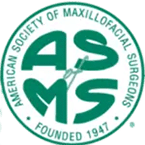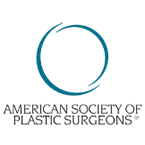Surgery is a team effort. If you wish to achieve the desired result and avoid complications, you must follow instructions. They are provided here for your benefit.
BEFORE SURGERY
- Soap and water cleansing before your operation is the most important factor in avoiding infection. Bathe or shower routinely each day with special attention to the area of surgery. Wash or shampoo the area of surgery the day before your operation. Special soaps or shampoos are not required and may irritate your skin. Use Ivory or Dial soap, or your usual soap.
- Do not wear facial cosmetics on the morning of surgery. Hair coloring and/or a perm can irritate incisions if they are applied just before or after surgery. If you are having facial surgery and the incisions will be in or near your hair, have your hair colored or have a perm at least one week before and not before two to three weeks after surgery.
- Do not eat or drink anything after midnight on the evening before surgery. Your stomach must be empty at the time of surgery. You may take prescribed medications by mouth with a sip of water on the morning of the surgery. Examples would be medications for your heart or high blood pressure, or prescribed antibiotics. If your surgery is scheduled in the late afternoon, ask the doctor’s office if a light early breakfast can be permitted and at what time. If you break these rules and eat or drink before surgery, the anesthesiologist will cancel the operation.
- If you are going home after surgery, make arrangements to have someone drive you to and from the hospital. Because you may be drowsy, a responsible adult should be available to help you with meals, medication, and assistance to the bathroom, if needed, on the night of surgery. If you stay overnight in the hospital, someone will still need to drive you home the next day.
- Have your prescriptions filled and take the medications as directed. Some discomfort follows all surgery. Pain medication should be taken as needed to relieve pain. If it hurts, it makes sense to take the pain medication. If it does not hurt, you do not need to take the medication. Most often pain is greater at night, than in the daytime, and pain medication may allow more restful sleep. Pain pills can increase nausea so only take what you need to be comfortable.
When needed, antibiotics are prescribed to prevent or treat infection. They are worthless if not taken as recommended. Follow directions. Take them as long and as often as directed.
- Do not take any Aspirin or medications containing Ibuprofen (Motrin, Advil, etc.) for two weeks prior to surgery. Read all labels and check to see that they do not contain these medications. Many over-the-counter medications and other non-steroidal anti-inflammatory drugs do contain Aspirin or Ibuprofen. Avoid them. Most vitamin supplements and herbal remedies also increase bleeding and should be stopped 2 weeks prior to surgery. A daily multivitamin is safe and can be taken, however. You may take Tylenol for minor aches and pains before an operation because Tylenol is not associated with an increased risk of bleeding.
- All asthmatics must bring their inhalers with them the day of the surgery. It is uncommon for anesthesia to worsen asthma, however.
- Wear comfortable clothes to and from surgery. Avoid pullover blouses, tight pants or high heels. These types of clothing are difficult to put on or take off after surgery. Wear flat shoes. A front closing dress is best for women.
- If you are spending the night in the hospital, bring a nightgown or pajamas, toiletries, etc. Do not bring your valuables. Personal items supplied by the hospital may incur additional charges to you.
- If you have any questions, ask!
Surgery is a team effort. If you wish to achieve the desired result and avoid complications, you must follow instructions. They are provided here for your benefit.
AFTER SURGERY
- Take medications as ordered for pain, nausea, and infection. It is best to take them with something in your stomach. Expect some discomfort and difficulty sleeping for the first 24 to 48 hours.
- After surgery, start taking liquids at first and increase your diet back to normal as tolerated.
- Rest. Resume light, normal activity, as you feel better. Avoid aerobics, weight lifting, or other vigorous activity for two to three weeks after surgery to prevent late bleeding or injury to your recent incisions. Abdominal muscle surgery or other muscle surgery requires a six-eight week period before heavy exertion.
- If dressings are applied, they will usually be removed within 24 hours. After the dressings are removed or if no dressings have been applied, you can wash your incision in the area of the surgery on the day after surgery. You can wash your incision and shampoo your hair with your normal shampoo and soap at that time. Special medicated soaps and shampoo are unnecessary and may irritate your skin. After surgery near the eyelid, it is helpful to dilute a drop or two of Johnson’s Baby Shampoo in a cup of water and use that mixture to gently wash about your eyelids by wetting a finger or a Q-tip. This is a gentle way to remove crusts and wash about the eyes without causing eye irritation. Do not put make-up on incisions until your sutures are removed and all crusts are gone. You may, however, put make-up on other areas of uninjured skin, but remove it carefully without excess rubbing which could pull an incision apart or stretch the scar.
- If you have incisions in or near your hair, do not color or perm your hair until two to three weeks after surgery. However, you can wash your hair with your usual shampoo the day after surgery.
- It is usually best to keep facial incisions or an area of dermabrasion greasy with ointment. All incisions ooze for the first 24 hours and the ointment softens the crusts and allows them to be easily removed with soap and water several times per day. You can use Bacitracin (available at drugstores without a prescription) for a day or two after surgery if you are not allergic to it. After that, use Aquaphor or plain Vaseline instead. Patients frequently develop allergies to medicated ointments after a few days, so we ask you to switch to Aquaphor or plain Vaseline after 1 to 2 days. You do not need to put ointment on incisions along or in your hair.
- If you stay in the hospital overnight, the doctor will see you in the hospital before you go home in the morning.
- If you have any questions, ask!
COMPLICATIONS
The goal of surgery is to create the desired appearance and function without complications. Most often the results of surgery are good and both the patient and physician are happy with the result. However, complications occasionally can and do occur. Unlike a carpenter who may remodel pieces of wood and simply glue them together, a plastic surgeon must “work” with living tissue. The human body has been miraculously formed with the ability to coagulate its blood vessels (stop bleeding), to fight infection, and to heal itself (normal wound healing). A medieval surgeon once said, “I care for the patient but God heals.” A surgeon can perform a procedure in the standard way but it is still your body that must heal itself. The surgeon performs an operation to modify living tissue to a more advantageous state, but the body must heal itself. Occasionally unforeseen problems occur. Any complication can slow healing, increase scarring, and occasionally require further surgery for correction or decrease the overall long-term result. If further surgery is needed to treat complications, additional hospital, anesthesia and medical costs may follow. You will be responsible for these additional costs.
Complications which can occur with surgery include:
- Bleeding – Any time an incision is made, bleeding can occur after surgery. This usually occurs within the first day or two and is best avoided by not taking Aspirin, Aspirin containing products, or Ibuprofen products (Advil, Motrin, etc.) for two weeks prior to surgery. These medications interfere with the platelet clotting mechanism of the blood and makes excessive postoperative bleeding more likely. Herbal and vitamin supplements also increase the risk of bleeding and should be avoided for at least 2 weeks prior to any operation. Also, heavy exertion, straining, aerobics and weightlifting or other similar exertions should be avoided for approximately two to three weeks after surgery. Because abnormal amounts of blood can interfere with healing, another unplanned operation may be required to wash out the clotted blood, if excessive bleeding occurs. This will increase the cost of surgery.
- Infection – Any time an incision is made, it can become infected. This is uncommon. If the wound does become infected, it may respond to oral antibiotics which you can take at home or occasionally require intravenous antibiotics and admission to the hospital. If an implant is used (breast augmentation or reconstruction, nasal or chin implant, etc.) the implant must usually be removed. Some months later it can usually be replaced. But the operation must be repeated and the final result may be less than expected.
- Scarring – Any time an incision is made, the wound heals with a scar. Scars are always visible, although they need not be deforming or obvious. All scars become red, raised and lumpy about a month after surgery. Then they become soft, flat, and white over the ensuing six months to a year. Such temporary redness is expected and normal. It is important that you understand that if surgery is performed, there will be a scar that comes with it. Some scars are less attractive than others.
- Decreased sensation – Local nerves of sensation are injured during surgery. Most often the feeling returns and the numbness diminishes over a few months and is sometimes restored almost to its preoperative condition over a year. There is numbness over the lateral face and neck at the time of a facelift, over the brow after a browlift, over the nose after rhinoplasty, over the lower abdomen after an abdominoplasty, on the breast or the nipple after breast surgery (especially breast reduction), and in the area of any incision.
- Decreased motor function – Although quite unusual, motor nerves that go to muscles in the area of any surgery can be injured. This can occur during a facelift or a browlift. If injured, a decrease in facial smiling or the lifting of the brow occurs. Fortunately, it is usually temporary and muscle function returns in a few months. Occasionally, it does not.
- Skin necrosis – Any time we make an incision, skin that is lifted up has a decreased blood supply, can heal poorly and may occasionally die. This is quite uncommon. It occasionally occurs with surgeries which lift large areas of skin (after a facelift, abdominoplasty, or a breast reduction). This is an unusual circumstance. However, it may be associated with slow healing, more scarring, and may require further unplanned surgery to remove the unhealthy skin, improve the scar, or the final result, if possible. It occurs more commonly in smokers and it is important to stop smoking two weeks before and after surgery. Serious necrosis is unusual but can necessitate additional surgery and limit the final result.
- Failure to achieve desired result – Many factors will affect the outcome of surgery. The surgery must be preformed in an appropriate manner to achieve full correction of the deformity and the best possible healing. The body must heal itself without bleeding, infection or excessive scarring. The patient’s own body tissues must be healthy. Obviously, excessive sun exposure may promote the early recurrence of skin cancer or signs of aging. Drinking of alcohol, smoking, or fluctuation in weight also causes more wrinkles, excessive skin, and signs of aging. In most circumstances, the body part on which surgery was performed was neither perfect nor ideal. It is unrealistic to expect that it will perfect after surgery. We can only hope to obtain a significant improvement which makes the surgery worthwhile. However, it is not possible to guarantee the results.
- Limitation of exercise – To allow proper healing and avoid excessive tension on the wound or bleeding, heavy exertion, aerobics and weight lifting or other sports activities should be avoided for two to three weeks after most surgery and for six weeks after abdominal surgery or other muscle surgery.
- Revisional (redo) surgery and complications – Occasionally, further improvement can be obtained by revisional surgery. After the wound is healed and the tissues are in the best possible condition, an additional surgery can sometimes make things look or function better than would otherwise be possible. The cost of such revisions (surgeon’s fee, operating room charges, anesthesia fee) are the responsibility of the patient, as are the costs of dealing with the complications.
Again it is impossible to guarantee the results of surgery. The patient must accept the inconvenience, discomfort and cost of surgery, the risk of surgery and the risk of complications. The consultation is an opportunity for both the patient and the physician to ask questions of one another so that they can each understand the problem and the best way to approach it. They must formulate a plan and decide what surgery (if any) is appropriate, understand the pros and cons of no treatment or of various techniques, and make a decision that both the patient and surgeon can agree upon. They must be comfortable with one another, have confidence in one another, and feel that they can work together to obtain the desired result. If these conditions are not met, surgery should not be preformed. Remember that it is your responsibility to give the risks and gains of surgery careful consideration. You must be willing to follow instructions and take responsibility for your part in your recovery.













